You are using different software on your computer. Even the operating system that powers your computer is a type of software (i.e. system software). The software allows you to interact with the hardware components. There are different types of software based on their function as well as copyright status. Based on copyright status, the software can be categorized into many types; free, open-source, copylefted, non-copylefted, shareware and freeware. Free software is a software that's available for free and gives you permission to use, copy and distribute the software in any way you want. Open-Source software is software whose source code is publicized by its developer under different licenses. The source code is open, and can be used, modified and distributed for free.
A copylefted software is a type of free software that mustn't be copyrighted by the modifier while redistributing the modified or extended version of the software. A non-copylefted software is also free software and provides the right to the users to modify the software and distribute it by adding license restrictions such as copyright. Shareware is a type of software for which you have to pay very less amount and you can distribute the copies of the software, but the people who use the software also have to pay fees to use the software. Most of the shareware isn't open-source. Freeware is similar to the shareware, but it's available to download and distribute without initial payment. But, it's copyrighted and you aren't allowed to distribute it as your software. Freeware isn't an open-source software.
Generally, most people use proprietary software (freeware and shareware) because the developers of the software don't want others to modify and distribute their software as their own. So, today I will help you turn your proprietary lifestyle to a free and open-source lifestyle; i.e. I will help you choose open-source alternatives for every software you use on your computer.
What's your computer running on? Probably, Microsoft Windows XP/Vista/7/8/10 or Mac OS X. But, both operating systems are commercial and proprietary software. You either bought these operating systems or got it pre-installed while buying your device or you searched cracked versions and installed them.
Which package do you use for word processing, spreadsheet, presentation, etc.? Probably, you use Microsoft Office. Yes, all of us use it or have used it before. Microsoft Office is also a proprietary software package.
Which web browser do you use? Probably, Google Chrome on Windows and Safari on Mac OS X. Yes, these are also closed-source web browsers.
Which media player do you use? Probably, Windows Media Player on Microsoft Windows. It's also closed-source software.
What about email service? You probably use Gmail or Yahoo! Mail or Outlook. These are all closed-source email services although they are free-to-use.
If you are a graphic designer, you must be using Adobe software. But, they are all proprietary and closed-source software.
Games? You must be using Steam to get games for your PC. Yes, you can install Steam on Linux as well. But, it's also closed-source.
These are the software you use. What about file formats?
Documents: You prefer .docx, .xlsx or .pptx formats which are provided by Microsoft Office. These are all closed-source formats.
Images: You prefer .png and .jpeg formats. Nothing's bad here. Both of them are open.
Music: You still prefer .mp3 format for music even though this format has been recently discontinued. This isn't open too.
Video: For video formats, there are 2 things; containers and codecs. You prefer MP4 file format and hence, you get proprietary codecs like MPEG-4 for video and AAC for sound.
What if I told you that you can get all these things for free as well as get their source codes for free?
Yes, you can get all these things for free as well as their source codes.
Now, there comes a question in your mind.
Why does the Source Code matter?
I am sure you might be telling something to yourself: Why do I need source code when I am not a developer and not interested in messing around with the code?
But, what if I told you that the closed-source things that you use, might be doing something wrong without letting you know? They might be taking your information and sending it to their servers when you are connected to the Internet. Yes, that's possible. Computer programs are made up of languages and you know what's possible with language: ANYTHING. The same is the case with computer programming languages that these programs use. So, someone who can understand these languages can find out what's wrong and make it clear to everyone to prevent using bad programs.
Closed-source software doesn't reveal their source code and we don't know what they are doing. You are going to buy a computer, and you aren't allowed to know the specifications. Then, what's the point? What if you don't get what you need? You have only the seller's word. This is just an example. But, the same is the case with closed-source software.
The reason why free software is made isn't just limited to "TRUST". The word "free" means the freedom to do anything with it, not just the price. Some free software (less than 10%) might cost money too, but after you get it, it's free. You can do anything with it. Since their source codes are available, new programmers can play around with the code and develop new software or develop a sequel of the same software if the developers lose their interest in the software. When the developers provide the source code for free, an open and honest relationship is built between the developers and the users. Therefore, you don't get tricked to get encouraged to buy new versions or find out that your information is being stolen. Even there aren't harmful pop-ups like "Download this ebook for free" and later ask you money to get it for free. Does this make sense that the product is free?
If it sounds like I mean everything should be free, I don't mean to say it. But, the developers should try to give for free.
It's not that every software should be free. There are some reasons why trusted companies like Microsoft produce proprietary software. This is why privacy issues are seen frequently in the latest versions of Windows. That's the reason why using Google search just means providing more information. The same can be compared with Facebook showing ads on their site related to what you search on the Internet.
But, you can change everything. You can go over to free and open-source software right now. Yes, there are free and open-source alternatives for everything you use.
So, are you ready to give up using proprietary software and turn over to the Open-source lifestyle?
If you are finding open-source software for the first time, or if you are a regular Linux user, then you can live an open-source lifestyle only if you are ready to sacrifice many things. You won't be able to get each feature that you get in Microsoft Windows, Microsoft Office, etc. in free and open-source software. Maybe you will miss some features or get more exciting features while using open-source software. If you are ready to make a change, you need to leave your priorities and expectations.
But, is it worth obtaining an open-source lifestyle? Certainly, it is. The developers of this software are more focused on improving their relationships with clients than making profits.
You can convince yourself to live an open-source lifestyle. I'm not here to force you to switch over to free and open-source software. If you want to use open-source software, then the lines below will certainly help you. Let's get started on our journey to living an open-source lifestyle.
Best FOSS Alternatives 2018
1. Choose an Operating System
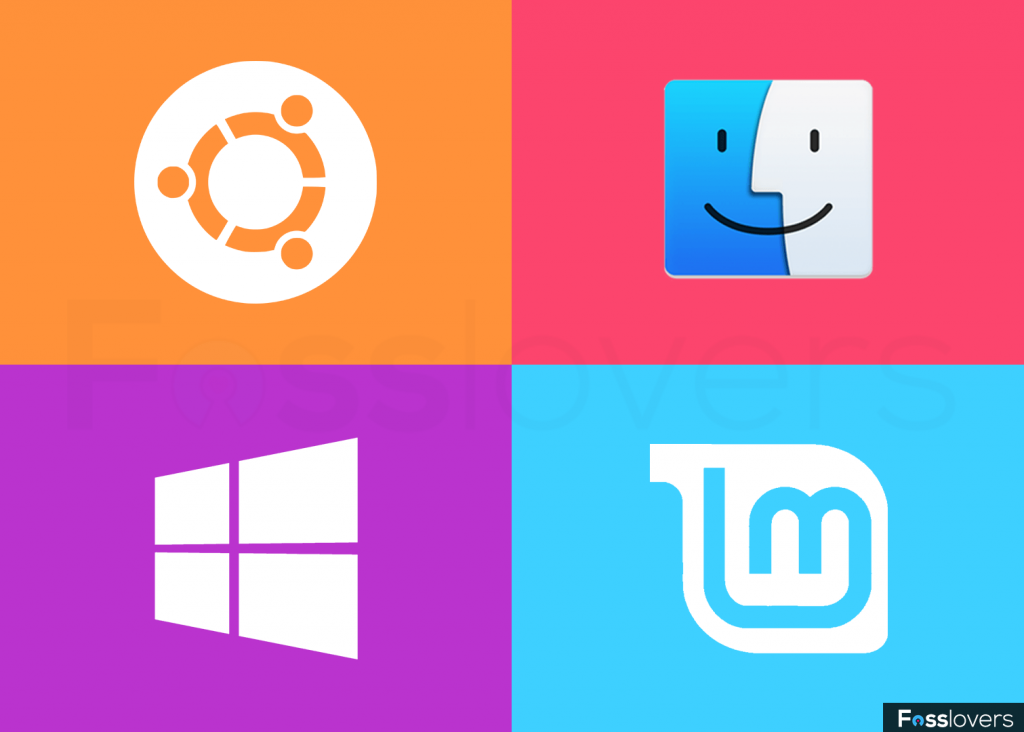
If you want to stop using Microsoft Windows or Mac OS X and want to start using an open-source operating system, then the best choice is Linux. You mightn't be using Linux on your PC, but you are certainly interacting with it every day. If you have an internet connection, you might be visiting different websites every day. Many of those websites are powered by Linux servers. Android phones and tablets and Chromebooks that you use are all powered by Linux. The ATMs you use to withdraw your money are powered by Linux-based systems. Even the large supercomputers and International Space Station are powered by Linux.
So, why not start using Linux based operating systems?
But, Linux isn't a single operating system. It's just a kernel There are many distributions (known as 'distros') of Linux because Linux is open-source. You can choose between many Linux distros. If you want to use the same features as in Microsoft Windows and Mac OS X, you shall prefer Ubuntu, Linux Mint, Fedora, OpenSUSE, Elementary OS, etc. If you want to use pen-testing and security tools, you can use Kali Linux or Parrot Security OS.
If you don't want to use Linux, there are still many other open-source operating systems. The best alternative to Linux for you can be FreeBSD. FreeBSD feels very similar to Linux and has similar features like in Microsoft Windows and Mac OS X.
Now, you can prefer either Linux or FreeBSD. That means you have chosen an operating system to use.
Now, you need to choose which desktop environment you will use. If you don't know what this means, it is the thing that will determine how your PC will look like.
If you are new to Linux, I'd recommend you to try out GNOME because it will make you feel same like you experienced in Windows or OS X. Later, when you are experienced with GNOME, you can prefer using Cinnamon if you were a Windows user and Pantheon (Elementary OS) if you were an OS X user.
If you have a computer with low specifications, you shall use Xfce or LXDE. You can also use MATE, KDE Plasma, Budgie, etc.
Now, you have to choose free and open source alternatives for all the types of freeware or proprietary software you use.
2. Office Package
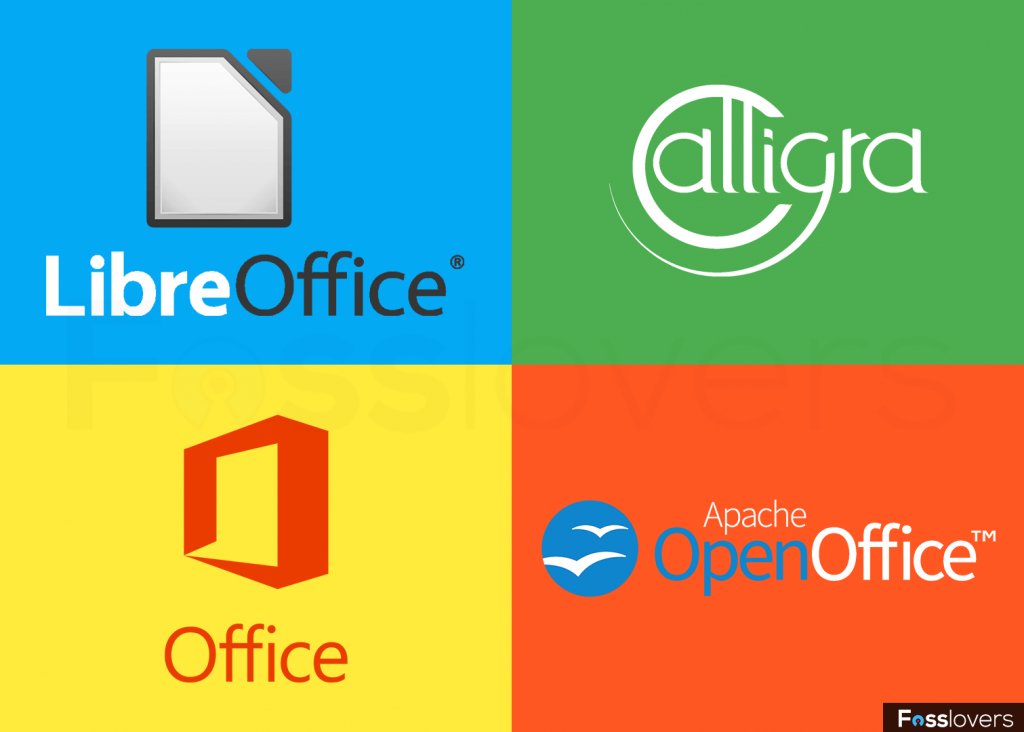
If you want to replace Microsoft Office and use an open-source office package, you can use either LibreOffice or OpenOffice. LibreOffice is free and open-source software, based on OpenOffice. It was developed based on the OpenOffice source code and it's the most actively developed successor project of OpenOffice. You can also use Calligra Suite if you don't want to use LibreOffice or OpenOffice.
Recommendation: LibreOffice or OpenOffice
3. Web Browser
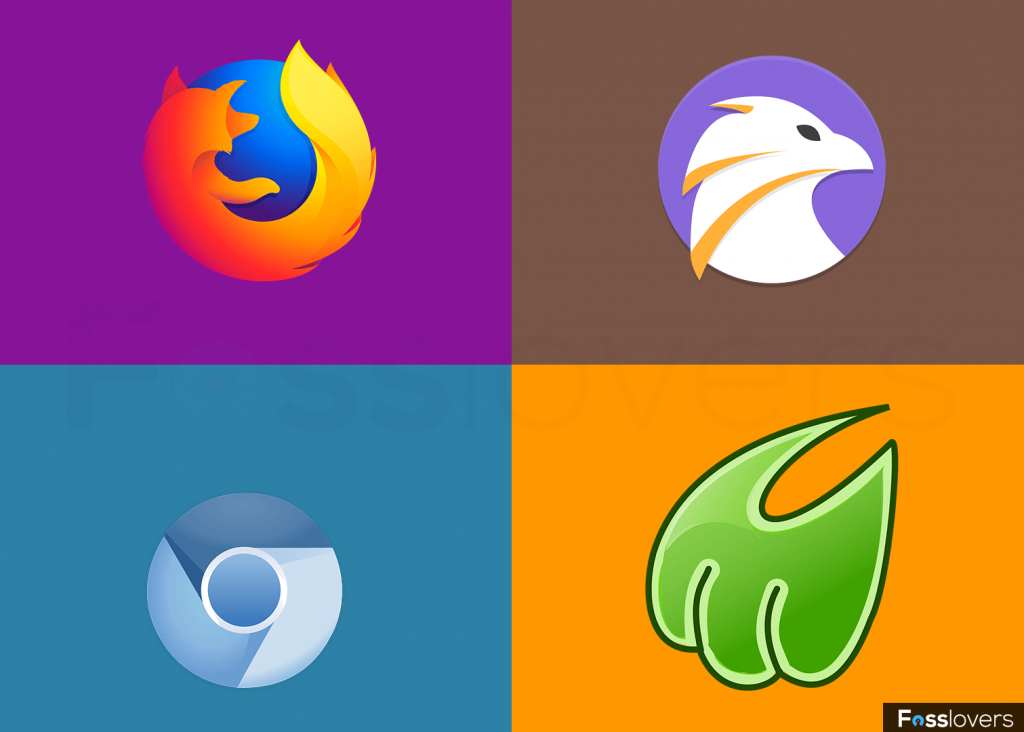
As a replacement for Google Chrome or Safari, you can consider using Mozilla Firefox which is the second most popular web browser software after Google Chrome. Firefox is also a free and open-source web browser.
If you don't want to use Firefox, you shall consider using Chromium although it doesn't have a stable release. Chromium project was started by Google to provide the source code of Google Chrome, but it doesn't provide the complete source code of Chrome. The chromium project is entirely an open-source project. You can also use other free and open-source web browsers like Midori, Falkon, Pale Moon, SeaMonkey, Konqueror, etc.
Recommendation: Firefox, Midori, Falkon, Chromium
Read More: "The Best Open-Source Web Browsers of 2018"
4. Media Player
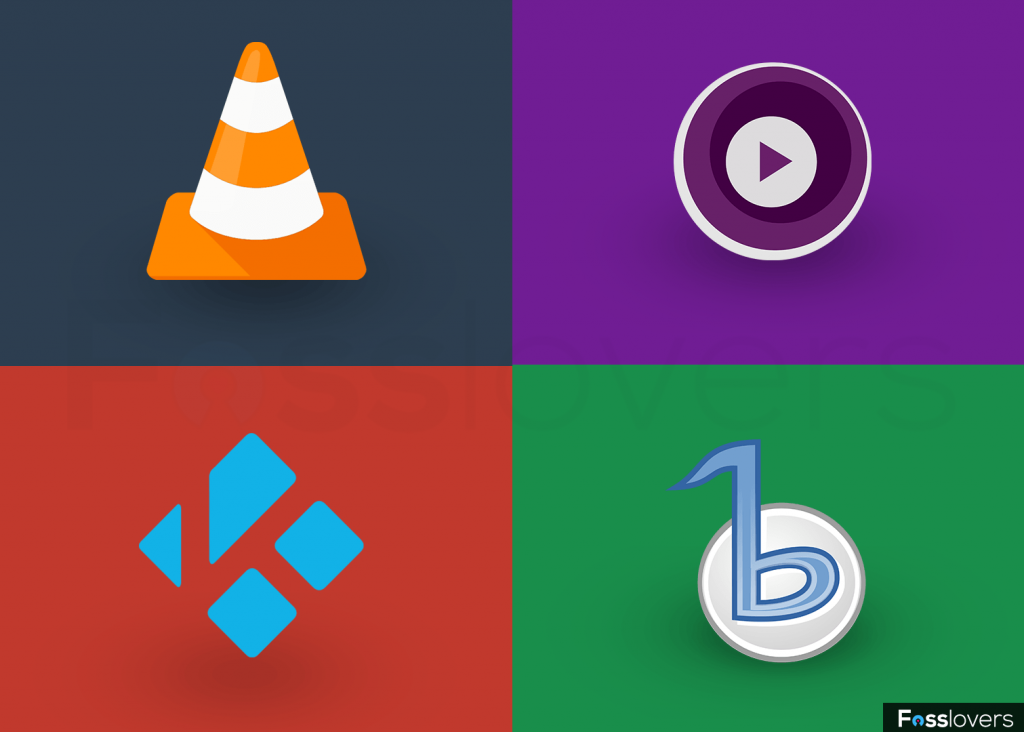
If you want a replacement for Windows Media Player, VLC Media Player is the best and the most popular among all. It's a cross-platform free and open-source media player and framework that plays most multimedia files as well as DVDs, Audio CDs, etc.
You can also use other free and open-source multimedia players like Kodi, MPlayer, MPV, Banshee, Audacious, etc.
Recommendation: VLC Media Player
5. Email Service
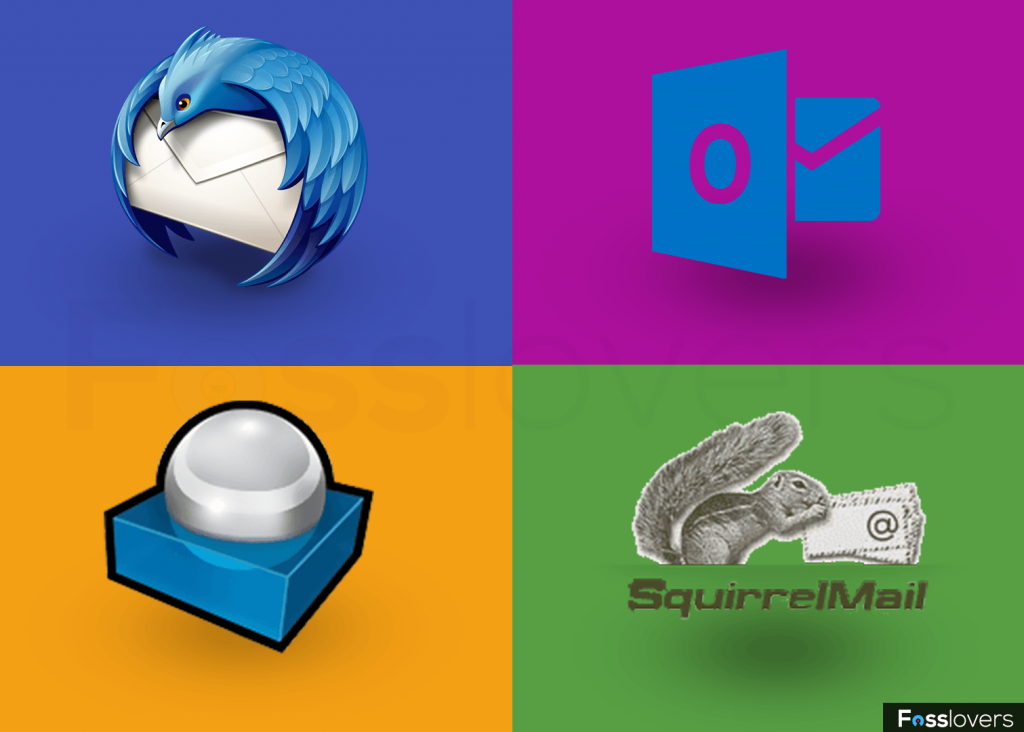
If you want to use an open-source webmail service, Roundcube can be a better choice. You can also consider using SquirrelMail, Zimbra or Rainloop among the popular ones.
If you want a replacement for Microsoft Outlook, I'd recommend you to use Thunderbird or Zimbra.
Recommendation: Thunderbird, Roundcube
6. Photo Editing
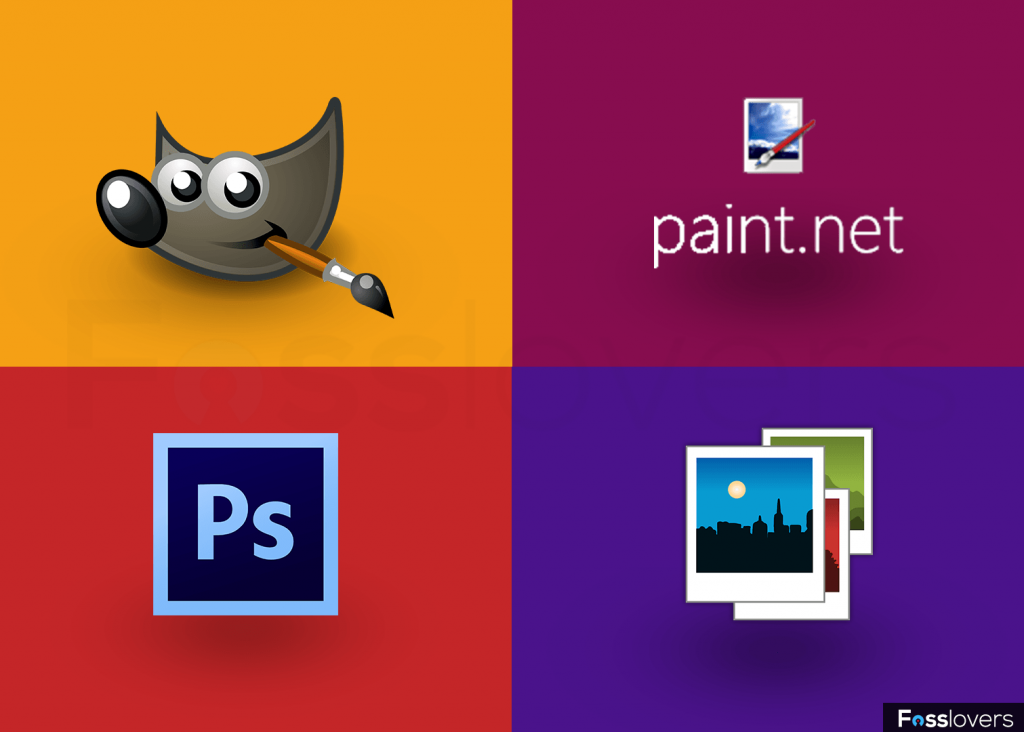
For photo editing, you might be using Adobe Photoshop. I'd recommend you to use GIMP or Paint.NET. But, Paint.NET is no longer open-source. So, you might prefer GIMP. GIMP provides more editing features than Paint.NET though. For photo management, you can consider using ImageGlass, Shotwell or digiKam.
You can also use other free and open-source photo editing software like Seashore, Pixen, Krita, etc.
Recommendation: GIMP
7. Video Editing
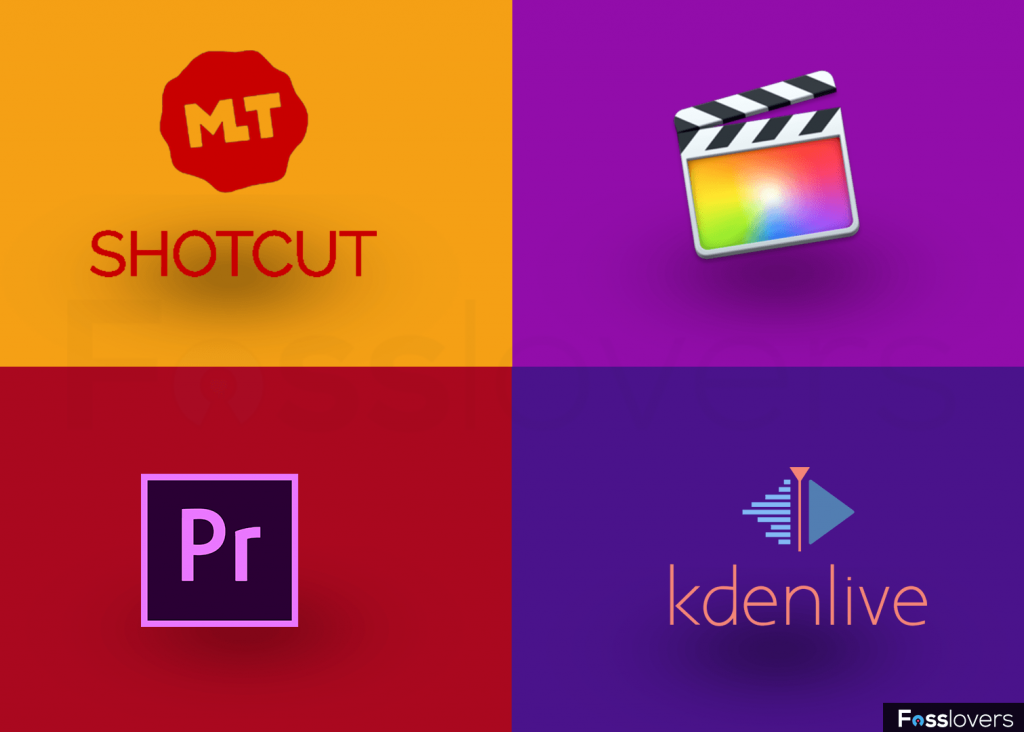
For video editing, you might be using Adobe Premiere Pro, Sony Vegas Pro, iMovie, Final Cut Pro or any other closed-source software. But, you can use free and open-source video editors as a replacement for this software. Some of the best open-source video editors are Shotcut, OpenShot Video Editor, VLMC, Avidemux (a video encoder), Kdenlive, PiTiVi, etc.
Recommendation: Shotcut, OpenShot Video Editor
8. Adobe Creative Suite
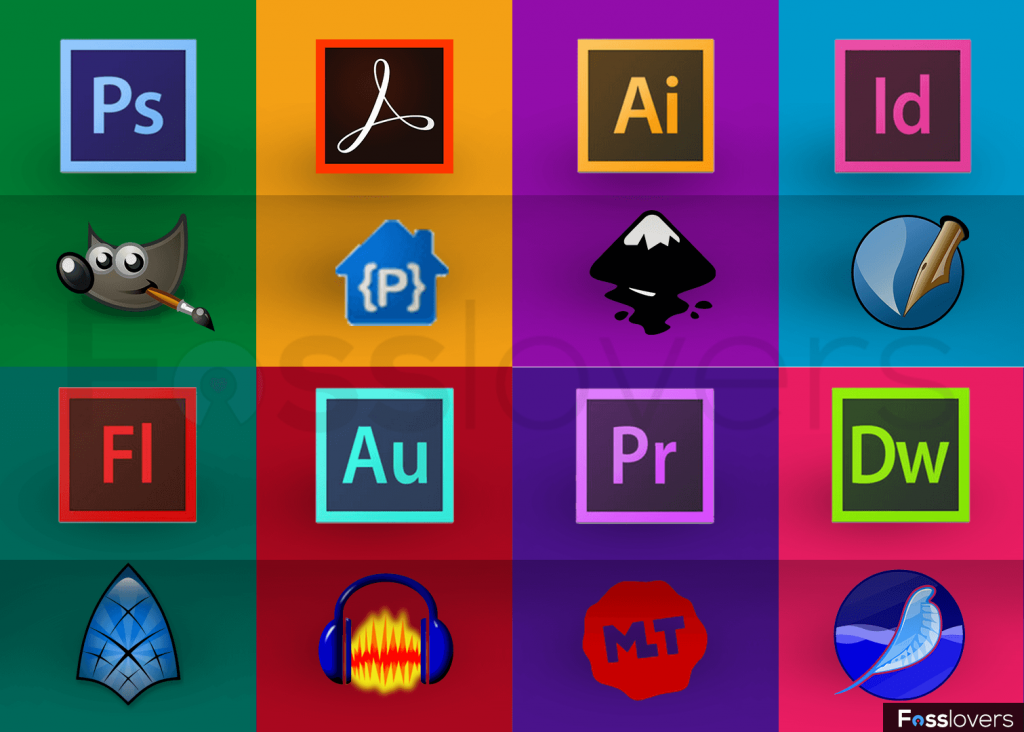
Adobe Creative Suite consists of many software for photo editing, vector designing, video editing, sound editing, etc. The following are the open-source replacements for software in Adobe Creative Suite:
- Adobe Photoshop can be replaced by GIMP or Seashore.
- Adobe Acrobat can be replaced by Formulate Pro.
- Adobe Illustrator can be replaced by Inkscape or Open Office Draw.
- Adobe InDesign can be replaced by Scribus.
- Adobe Flash can be replaced by Synfig.
- Adobe Audition can be replaced by Audacity.
- Adobe Premiere Pro can be replaced by Shotcut.
- Adobe Dreamweaver can be replaced by SeaMonkey.
9. Games
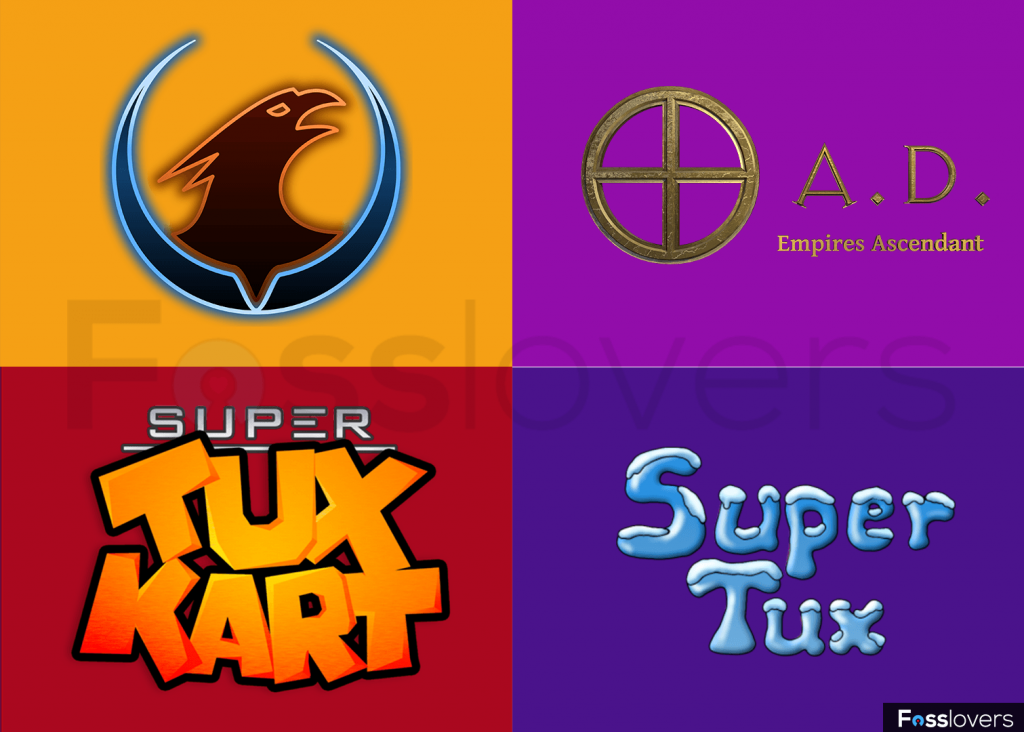
Since Steam is closed source software, most of the games are locked behind DRM. If you want to replace Steam, you can prefer using GOG.com. Even though GOG.com is a DRM-free store, it still provides closed source games.
Maybe this is the only topic where an open-source alternative isn't fully available and isn't expected to be available anytime soon. But still, you can find some open-source games. Some of the best open-source games that you can play are 0 A.D., OpenTTD, SuperTuxKart, SuperTux, Hedgewars, Xonotic, Freedom, etc.
File Formats
Yes, there are open-source file formats as well. You can start using these file formats too if you want to live an open-source lifestyle.
Documents
You must be using Microsoft Office for creating and managing documents. So, the file formats are usually .docx, .pptx, and .xlsx. These file formats will load in open-source alternatives like OpenOffice and LibreOffice too, but not the same in some cases.
If you want to use open-source document formats, you need to apply the OpenDocument standard. LibreOffice and OpenOffice, as well as other open-source office packages, use this standard as the default format. The file extensions will be .odt, .ods, and .odp. These file formats will load in Google Docs as well as newer versions of Microsoft Office.
If you want your file to look the same, you shall save your document in .pdf format. If you are sending your bio-data to someone, this format will help you.
Images
You must be using .jpeg or .png file formats for images. That's fine. Both of them are open standards. So, there's no need to change formats here.
Music
.mp3 format has already been discontinued. But, you are still using this file format for music. If you want to use an open-source music format, you can use the .ogg file format.
If you want to listen to music in such a way that sounds similar to listening from CD, you shall use the FLAC audio coding format. With this format, you'll be able to hear lossless compression of digital audio.
Video
You must be using video formats like MPEG-4. If you want to use an open container format, you shall move over to MKV. But, it's not just about the video. When it's about formats, there are 2 things; containers and codecs. Even though you are using MKV container, the codecs will be MPEG-4 for video and AAC for audio and both of them are proprietary formats.
So, if you want to use an open format with open containers and open codecs, you shall use the OGG Theora video codec. But, it's not much better as it lacks the performance and features found in the latest versions of popular video formats. Google has developed an open container and open codec format, i.e. WebM (container) and VP9 (codec), which are commonly seen in online videos. So, you shall prefer WebM as a container and VP9 as a codec.
Conclusion
If you start making a switch as I told above, then that's good. But still, you won't be living a complete open-source lifestyle because there are many areas of games where open-source is yet to come.
I'm not convincing you to make a switch, because you will have to sacrifice a lot of things if you make a switch for everything mentioned above. Instead, you can slowly make a switch. You can start using open-source software and file formats in your Windows or macOS computer and later switch over to Linux or FreeBSD. If you are interested and if you are ready to sacrifice a lot of things including the latest games that you play, you shall start using free and open-source operating systems too.
So, if you have started using a free and open-source operating system, you can share your experience below. If you have any further queries, you can let us know. We'll try to help you if we can.
Suggested For You: “The Best Open-Source Web Browsers of 2018”


No comments:
Post a Comment